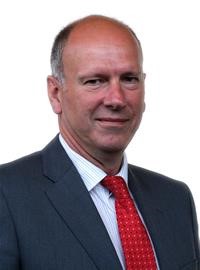Published 12/05/2015
| Last Updated 16/12/2024

I’m David Rees
(@DavidReesAM), Chair of the Health and Social Care Committee.
In September 2014 the Committee started looking into the issue of new psychoactive substances (“NPS”). We have now finished our inquiry and have written a
report (PDF, 1MB)
making 14 recommendations to the Welsh Government. A shorter
summary (PDF, 252KB) is also available.
What are New Psychoactive Substances (NPS)?
NPS are commonly marketed as safer and legal alternatives to illegal drugs, often made in laboratories and sold via the internet or in so-called “head shops” that exist on the high street. They are often referred to as “legal highs”. This marketing is misleading – their side effects can be as serious as those caused by illegal drugs, and they can be as addictive too. Often, they also contain traces of substances that are against the law to sell and take.
Why did we hold this inquiry?
We decided to look into this issue because the use of NPS has grown in Wales, and elsewhere, in recent years. In 2013, 60 deaths in England and Wales involved NPS, 15 per cent higher than the previous year. Members were concerned about the health and social harms caused by NPS, and wanted to shine a light on the steps that need to be taken to allow people to make more informed decisions about their use of NPS.
How did we gather people’s views for this inquiry?
We used a number of different ways to ask people what they think about NPS, including:
- asking the public to fill in a survey, which 1072 people responded to from across Wales;
- inviting representatives from key organisations to speak with Members in official meetings at the Senedd in Cardiff Bay;
- holding focus groups in Merthyr Tydfil and Wrexham to hear directly from frontline staff, and Committee members visited the LOTS project, Forsythia Youth Club, DrugAid and the headquarters of DAN 24/7, Wales’ national substance misuse helpline.
We wrote a
blogpost about these visits and have also have published
pictures from Wrexham and
Merthyr alongside some short
videos so you can see what the Committee has been doing:


[youtube https://www.youtube.com/watch?v=k3DdKzhfrh8?list=PLAiwHW5TKfkGo7P-NpsxYme-XAO_ucUQ_]
The Committee also used
storify to keep people updated on the inquiry’s progress.
What did people tell the Committee and what have we done about it?
What the Committee was told
- More needs to be done to increase public awareness of the harms caused by using NPS;
- the term “legal highs” is really unhelpful. It suggests that using these substances is a safe and legal thing to do. In reality, they are often really harmful and contain illegal substances;
- the UK Government, which is responsible for drugs policy, should ban the supply of NPS, making “head shops” and market stalls that sell NPS illegal;
- those using NPS should not be given a criminal record - that could make things even worse for users who are trying to get their lives back on track;
- not enough is known about how many people are taking NPS and what harms they can cause.
What we said in our report
- The current drugs education programme in schools should be reviewed urgently to make it better and more consistent across Wales, and to make sure it is delivered by people who are suitably trained and qualified;
- a national training programme on NPS should be developed for all staff providing public services (e.g. doctors, nurses, police, social workers, prison officers etc);
- the Welsh Government’s 2015 public awareness campaign on NPS should include targeted information for young people and emphasise that legal does not mean safe;
- those working in this field, including the media, should stop using the term “legal highs” as it is very misleading;
- the Welsh Government should encourage the UK Government to move as quickly as possible to implement the suggested ban on the supply of NPS.
To read all 14 of our recommendations please see our
report (PDF, 1MB)
or the shorter
summary (PDF, 252KB) document.
What did the UK and Welsh Governments think about our report?
The
Welsh Government’s response (PDF, 295KB) to our report accepts fully all of our recommendations.
The UK Government Home Office (PDF, 69KB) has also written to the Committee to note that it welcomes our work and supports each of our 14 recommendations.
What happens next?
Our report will be debated by all Assembly Members on
13 May in the
Siambr, the Assembly’s main debating chamber. This will be an opportunity to draw attention to this important topic, and to put questions to the Welsh Government’s Health Minister about what the Welsh Government will do to deliver our recommendations.
I would like to thank everyone who took the time to share their experiences of NPS and their views about what needs to be done to raise public awareness of their harms. Although the Committee itself can only recommend changes rather than being able to make the changes itself, we will continue to put pressure on the Welsh Government and others to deliver the actions set out in our report.
How to get involved and keep up-to date with our work
- Follow @seneddhealth for all the latest information.
- Visit the Committee’s homepage at www.assembly.wales/seneddhealth for information on current inquiries and Bills
- NPS inquiry homepage: keep up-to date with the progress of the inquiry
- You can find more information about NPS, including how you can get help and support if you have used them, on the DAN 24/7 website.
 I’m David Rees (@DavidReesAM), Chair of the Health and Social Care Committee.
In September 2014 the Committee started looking into the issue of new psychoactive substances (“NPS”). We have now finished our inquiry and have written a report (PDF, 1MB) making 14 recommendations to the Welsh Government. A shorter summary (PDF, 252KB) is also available.
What are New Psychoactive Substances (NPS)?
NPS are commonly marketed as safer and legal alternatives to illegal drugs, often made in laboratories and sold via the internet or in so-called “head shops” that exist on the high street. They are often referred to as “legal highs”. This marketing is misleading – their side effects can be as serious as those caused by illegal drugs, and they can be as addictive too. Often, they also contain traces of substances that are against the law to sell and take.
Why did we hold this inquiry?
We decided to look into this issue because the use of NPS has grown in Wales, and elsewhere, in recent years. In 2013, 60 deaths in England and Wales involved NPS, 15 per cent higher than the previous year. Members were concerned about the health and social harms caused by NPS, and wanted to shine a light on the steps that need to be taken to allow people to make more informed decisions about their use of NPS.
How did we gather people’s views for this inquiry?
We used a number of different ways to ask people what they think about NPS, including:
I’m David Rees (@DavidReesAM), Chair of the Health and Social Care Committee.
In September 2014 the Committee started looking into the issue of new psychoactive substances (“NPS”). We have now finished our inquiry and have written a report (PDF, 1MB) making 14 recommendations to the Welsh Government. A shorter summary (PDF, 252KB) is also available.
What are New Psychoactive Substances (NPS)?
NPS are commonly marketed as safer and legal alternatives to illegal drugs, often made in laboratories and sold via the internet or in so-called “head shops” that exist on the high street. They are often referred to as “legal highs”. This marketing is misleading – their side effects can be as serious as those caused by illegal drugs, and they can be as addictive too. Often, they also contain traces of substances that are against the law to sell and take.
Why did we hold this inquiry?
We decided to look into this issue because the use of NPS has grown in Wales, and elsewhere, in recent years. In 2013, 60 deaths in England and Wales involved NPS, 15 per cent higher than the previous year. Members were concerned about the health and social harms caused by NPS, and wanted to shine a light on the steps that need to be taken to allow people to make more informed decisions about their use of NPS.
How did we gather people’s views for this inquiry?
We used a number of different ways to ask people what they think about NPS, including:

 [youtube https://www.youtube.com/watch?v=k3DdKzhfrh8?list=PLAiwHW5TKfkGo7P-NpsxYme-XAO_ucUQ_]
The Committee also used storify to keep people updated on the inquiry’s progress.
What did people tell the Committee and what have we done about it?
What the Committee was told
[youtube https://www.youtube.com/watch?v=k3DdKzhfrh8?list=PLAiwHW5TKfkGo7P-NpsxYme-XAO_ucUQ_]
The Committee also used storify to keep people updated on the inquiry’s progress.
What did people tell the Committee and what have we done about it?
What the Committee was told


